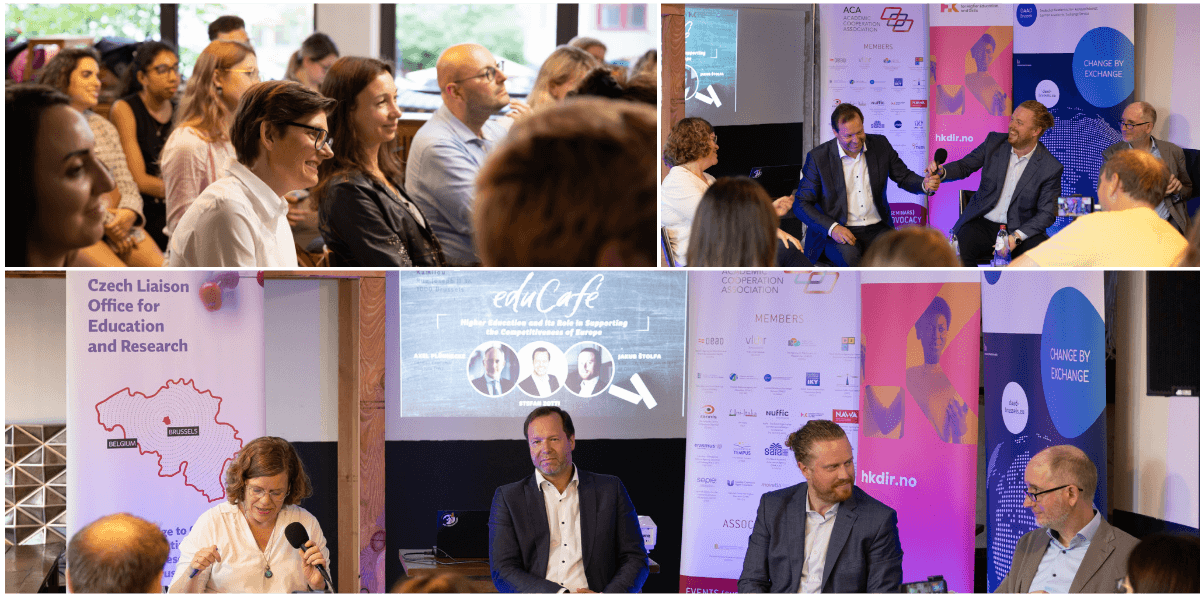Stay in the loop! Subscribe to our mailing list
On 26 June 2025, the final EduCafé before the summer break brought together policymakers and practitioners for a timely and engaging discussion on “Higher Education and its role in supporting the competitiveness of Europe.” Organised jointly by the Czech Liaison Office for Education and Research in Brussels (CZELO), the Norwegian Contact Office for Research, Innovation and Education (NorCore), the German Academic Exchange Service (DAAD) Branch Office in Brussels, and ACA, the event offered a space to reflect on how universities contribute to Europe’s economic strength in a rapidly evolving global landscape.
Moderated by Ragnhild Solvi Berg from NorCore/HK-Dir, the panel featured three speakers offering diverse perspectives: Dr Jakub Štolfa, Assistant Professor at VSB – Technical University of Ostrava and President of the Automotive Skills Alliance; Prof. Dr Axel Plünnecke, Head of the Cluster Education, Innovation, and Migration at the German Economic Institute (IW); and Stefan Zotti, Deputy Head of Unit B1 (Higher Education) at the European Commission’s DG EAC.

Copyright Petra Israël
The discussion explored how higher education can boost Europe’s competitiveness—not just by advancing knowledge, but by driving skills development, research, and regional innovation. The main outcomes of the discussion are:
In closing, panellists agreed that Europe’s competitiveness is rooted in people, education, and values. A long-term vision must prioritise cooperation, inclusiveness, and investment in people. These outcomes echo the conclusions presented in the ACA recent position paper, highlighting the importance of a strong Erasmus+ programme in developing transformative skills and competences of higher education students and staff, and enabling them to become successful (future) employees, entrepreneurs, innovators, and active citizens, fostering Europe’s innovation-driven and socially inclusive growth.